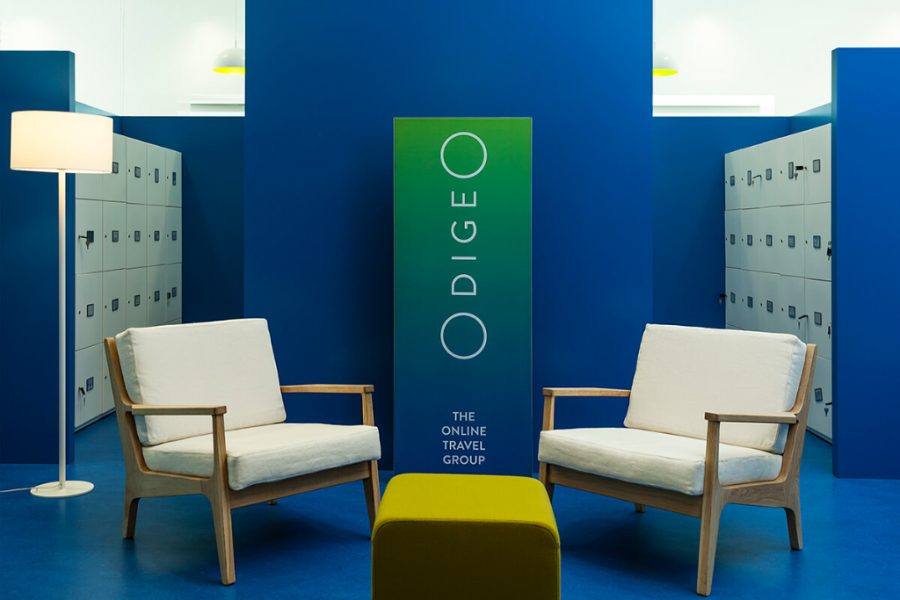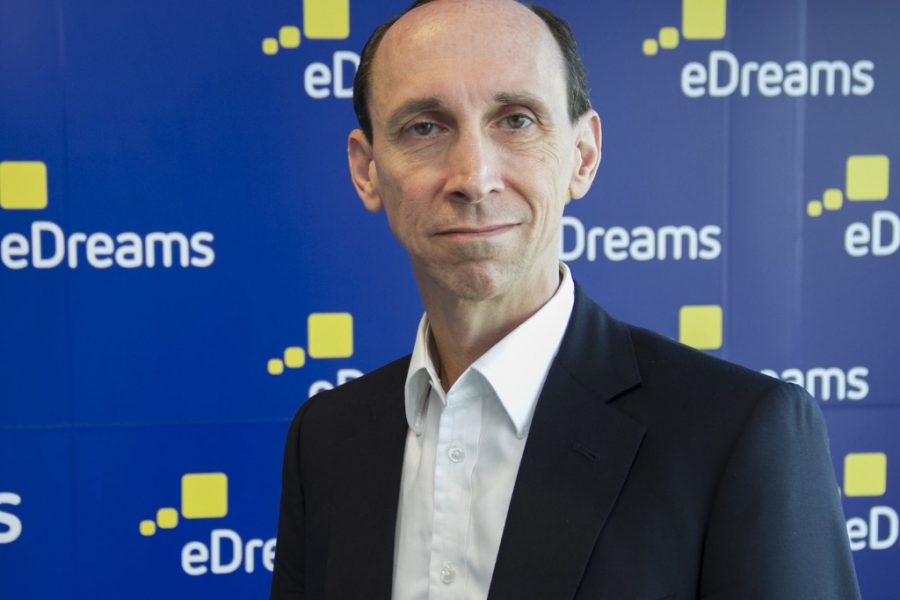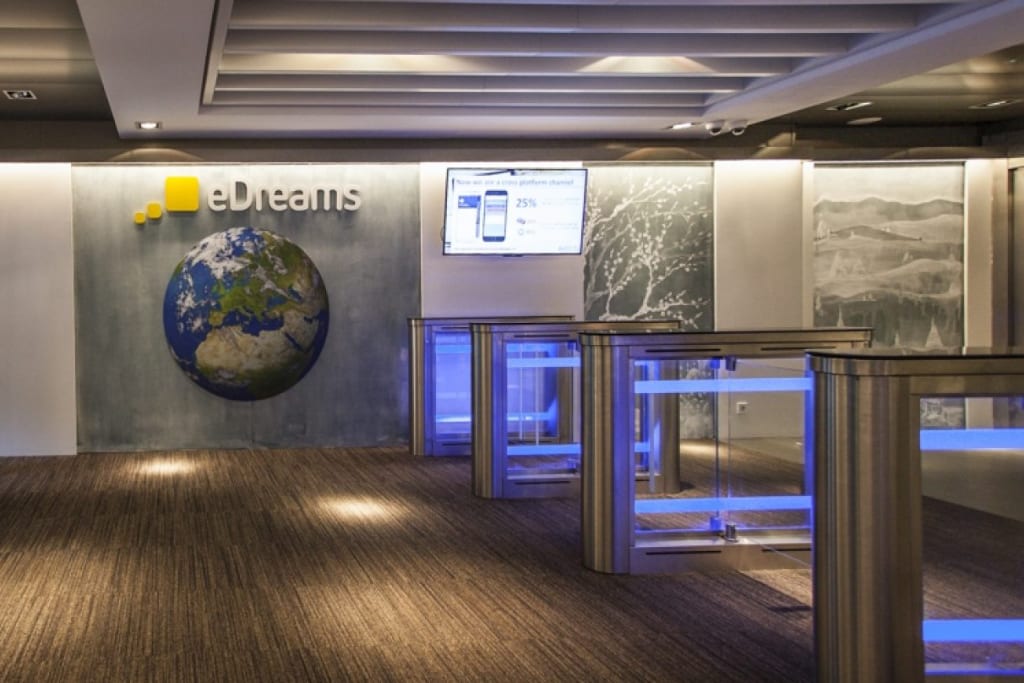Skift Take
The dream of being a turnaround artist who swoops into a distressed company to restore growth is appealing to many people. But CEO Dana Dunne is finding that the turnaround of eDreams Odigeo that he has been pursuing since 2015 is a long hard slog.
Online booking conglomerate eDreams Odigeo is out of intensive care but shows no signs of leaving the hospital. While the company’s family of brands continue to be the largest online seller of flights in Europe, several of the group’s key financial metrics remain worrisome.
A year ago, Permira, which owns about 30 percent of eDreams Odigeo shares, and Ardian, which owns about 17 percent of shares, pushed hard to sell the public company.
In March, the company said it was no longer for sale.
Despite that statement, CVC Capital Partners and CVC Capital Partners in late spring may have made the best offer with a possible takeover bid of about $700 million, according to The Times of London. If true, that offer would have been a modest premium over the group’s market capitalization of about $400 million.
At least one private equity company that looked at the group’s books said that eDreams Odigeo’s “risk profile” was too high.
On Thursday, eDreams Odigeo reported its results for the three months through September, and those results highlighted why some investors find the company’s future risky. The company swung to a net loss of $24 million, or €22 million, compared to a net income of about $15 million, or €13.4 million, in the same period a year earlier.
The company booked about $150 million, or €132.9 million, in revenue in the second quarter of its financial calendar, up only about 3 percent, year-over-year. That represented a tepid growth level well below the average for many of its online travel agency and travel price-comparison peers.
Uncertain Outlook
The management forecast that, in its fiscal year 2019, bookings volumes would either be flat or fall up to 4 percent, year-over-year. The predicted stagnation compares unfavorably against the positive growth forecasts of many of its online travel agency peers and against a background of presumed continued positive economic growth and growth in travel volumes in Europe that are forecast in the period.
All other large competitors, including Expedia (Europe’s second-largest seller of online flights) and Priceline (the Continent’s third-largest online flights seller) have seen their revenue and bookings in Europe rise at faster rates, according to analysts, who also believe that Ctrip.com/Trip.com/Skyscanner is also growing fast.
Smaller companies, such as eTraveli, Flight-hub, Kiwi.com, and MisterFly, have said they continue to grow revenue at double-digit rates and bookings at high rates.
Management said it would not forecast its future working capital, or cash flow, because the range could vary from tens of millions to hundreds of millions of euro, suggesting it was exposed to a few risks.
Out of caution, management recently accepted a revolving credit facility which could be tapped in case of a cash flow crunch, where the company might be spending more than it could cover with available capital.
To be fair, as of June, rating service Moody’s said that the group had “adequate liquidity,” with a cash balance of about $140 million, or €125 million, and that the upsized about $200 million, or €175 million, super-senior revolving credit facility available until 2023 was mainly “an added cushion.”
Several eDreams Odigeo brands used to be misleading in how they displayed the pricing of travel products, advertising teaser rates that turned out not to be the final true cost. Investigations by aviation and advertising regulators in Europe have prompted the group to become more transparent about the true cost of their product.
Today it is transparent in its pricing in about half of its markets, and it aimed to be more transparent in about 80 percent of its markets by next summer.
Management cited the example of an unnamed market and said that after it debuted transparent pricing there, it saw a drop in traffic volume that rebounded after about four months.

In 2017, eDreams Odigeo moved into new offices in Barcelona designed by Vimworks. Source: Vimworks.
Drops in traffic volume accounted for roughly half the group’s headwind, admitted chief financial officer David Elizaga in response to investment analyst questions.
The second biggest headwind, according to Elizaga, was that the group’s customers had over the summer moved to increase their spending on low-cost carriers, which are a less lucrative channel for the group than tickets on legacy carriers, on balance.
The third headwind was methods of payment. EDreams Odigeo is increasingly drawing customers that prefer to pay via credit cards and other payment methods that tend to be more expensive, at about one to two percent of the size of the transaction, for the company to process than others, like debit cards.
In short, while the company has successfully reduced its dependence on service fees for selling flights, it hasn’t done so in a remarkably lucrative or high-growth way. Costs for marketing, such as a recently debuted TV ad, and other inducements to attract customers, such as the recently added cancelation policy for flights, has increased year-over-year and management conceded that that might be an ongoing increased level of expense.
Executives said that an insignificant share of its customers come from Google’s flight and metasearch auctions, in contrast to a significant share of business from that channel for larger players like Expedia and Priceline. As Google makes its metasearch product more prominent in its search display, eDreams may increasingly be at a marketing disadvantage in that channel.
CEO Dana Dunne said, “My personal belief is they [Google] want to compete with Kayak and Skyscanner to be a main distribution partner and then pass [consumer referrals] off to people like us and our competitors [and travel suppliers].” But he remained committed to minimizing his group’s dependence on Google.
Questioning Its Claims
On Wednesday, CEO Dana Dunne touted several times that the company has diversified its sales. In the past, more than half of the company’s revenue had come from a customer service fee for booking flights.
The second quarter was the first time in the company’s history when a majority of its revenue came from things other than the flight service booking fee.
“This means that out of every 100 bookings, we now are able to sell over 60 additional products and services,” Dunne said.
However, the boast may be less than meets the eye. Dunne declined to break out the percentage of bookings that it has successfully attached additional sales.
More importantly, a more diversified revenue mix is only helpful if the new mix is more profitable and rapidly scalable. So far, the group’s new mix is neither.
The company’s revenue margin for flight versus non-flight products over the past few years versus the most recent six months of this financial year hasn’t grown.
The implication of that stagnant growth was that much of the add-on revenue the company is expanding is for relatively low-margin flight-related ancillaries, such as checked baggage fees, rather than relatively high-margin non-flight products, such as hotels and vacation products.
The group has also had to spend more to attract customers, such as by offering a new product that enables consumers to cancel a flight booking for any reason.
On Wednesday, management also claimed that eDreams now has a 30 percent share of the European online travel agency flight market, up from the 27 percent it claimed in May 2017. But that partly reflects a huge fall in business at a former significant player, Unister Travel, rather than growth.
More than one brand at giant rival online travel groups has privately disputed eDreams Odigeos’s numbers used to calculate its share position. One has privately counter-claimed eDreams Odigeo has been losing share of revenue in multiple key European country markets.

eDreams Odigeo CEO Dana Dunne. Source: eDreams Odigeo.
Talent Watch
Since Dunne has become CEO in January 2015, the company has turned over a lot of key management positions, and critics allege that the churn has delayed the company’s return to growth. Departures have included the chief operating officer, chief technology officer, chief marketing officer, multiple chief revenue officers and the revenue development officer, and the chief product officer and the director of product management and the chief officer of vacation products.
The company has also seen a changeover at the director, manager, and country manager levels, including the head of international business, that anecdotally seems higher than the recent churn at comparable online travel companies.
Some of the companies critics, including current and departed officials, have labeled Dunne with adjectives like authoritarian and have described incidents where he has shouted in public at team members and torn documents from team members’ hands.
Dunne’s reputation among critics — who, as always, have their own axes to grind, and whose opinions must be taken with a grain of salt — is that he dislikes being challenged. That reputation wasn’t helped on Wednesday when Dunne chose to end a call with investment analysts after 80 minutes rather than answer all of the questions in the queue, a decision that came in the context of most of the questions being probing and critical.
Dunne declined to be interviewed for this story.
Making Some Progress
Dunne has cited several accomplishments under his watch, which Skift has reported before. On Wednesday he told investors that the company had trimmed the marketing acquisition cost per customer by 19 percentage points since Dunne came on board. Its mobile effort has outpaced that of much of its peers, he plausibly noted.
In October 2017, eDreams Odigeo confirmed that it, Ryanair, and Google had reached a settlement to end legal proceedings among the three parties, which enabled some Ryanair fares to be sold again on the group’s brands. Ryanair is the largest low-cost carrier in Europe.
But while being a turnaround artist may seem like an appealing role, CEO Dana Dunne may be finding that the task at eDreams Odigeo has been an unglamorous and arduous path.
The Daily Newsletter
Our daily coverage of the global travel industry. Written by editors and analysts from across Skift’s brands.
Have a confidential tip for Skift? Get in touch
Tags: edreams, edreams Odigeo, edreams odigeo group, online travel agencies
Photo credit: An image of the eDreams Odigeo offices in Barcelona, where the company moved into new offices in 2017. Inset image is of CEO Dana Dunne photographed at a trade event. Source: eDreams Odigeo. On Thursday, eDreams Odigeo reported its results for the three months through September 2018. It swung to a net loss of $24 million, or €22 million. eDreams Odigeo
